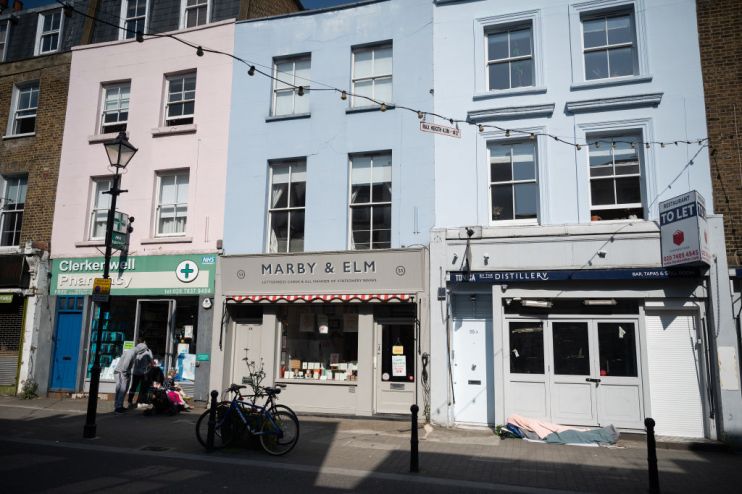This Saturday is a chance to support the small businesses livening up our streets

As fewer lights twinkle on Britain’s high streets, and individuals tighten their belts anticipating tough times ahead, small businesses are unsurprisingly fearful of what winter will bring.
It’s not the backdrop we’d hope for to mark a decade of Small Business Saturday tomorrow, but it underlines the ongoing importance of supporting the UK’s 5.5 million small firms.
As the word “recession” becomes embedded in our plans for the future, businesses and individuals are asking how they are going to weather the storm. The answer has to be found in our communities, looking at what can be done to help ease the burden.
For policy makers, this means addressing the crushing costs of business rates. The extra relief for retail and hospitality announced recently was a welcome step in the right direction here. It must also mean local business support hubs, connected communities, peer to peer support and more recognition of the value small businesses bring locally.
Small businesses power communities. They provide employment, drive local economies and supply chains, help the vulnerable and innovate to solve problems. There is not only a strong argument for the public to invest in them, but for local and central government too. The huge contribution small firms make across everything from jobs, to culture, to social care should be encouraged and rewarded, both fiscally and in the approach to business support.
More broadly in society, it means putting small businesses at the heart of solving our major challenges. Take climate change – small businesses are disproportionately engaged in the sustainability conversation, embracing innovative approaches to reducing emissions and responding fast to new opportunities and information.
Innovation from small business will be key to achieving net zero, reducing reliance on Russian energy, and building future economies. So supporting R&D for small business should remain a priority for government and the private sector, not pushed down the list due to concern over the efficacy of the system in place. We need more innovation, not less, and we need it from the brightest, tiniest of firms.
We also need to remove more obstacles for small businesses. Unlocking export opportunities should be a top priority for businesses and policy makers. With a stagnant home market, small businesses naturally look abroad to grow. But the barriers to trading with the EU are significant –transport delays, painful forms, returns challenges, limited delivery options – all add cost and complexity which businesses struggle to absorb. If we can open up more markets for small business, we can open up optimism and confidence – the two key factors in getting through difficult times.
And make no mistake, this is going to be a difficult winter. The campaign’s research with American Express shows two thirds of business owners see rising costs as their biggest challenge over the next six months, with 61 per cent citing rising energy costs and half naming economic uncertainty.
But the game is not over. A decline in GDP of 0.2 per cent is not the end of the road – in fact, the economy is essentially still the same size and that means there are still opportunities out there. If we can help small businesses maximise these, we can start on the road to recovery.
We all have a role to play. Tomorrow, Small Business Saturday is a moment to focus on putting small businesses first. It isn’t just one way to drive economic recovery – it’s the only way.